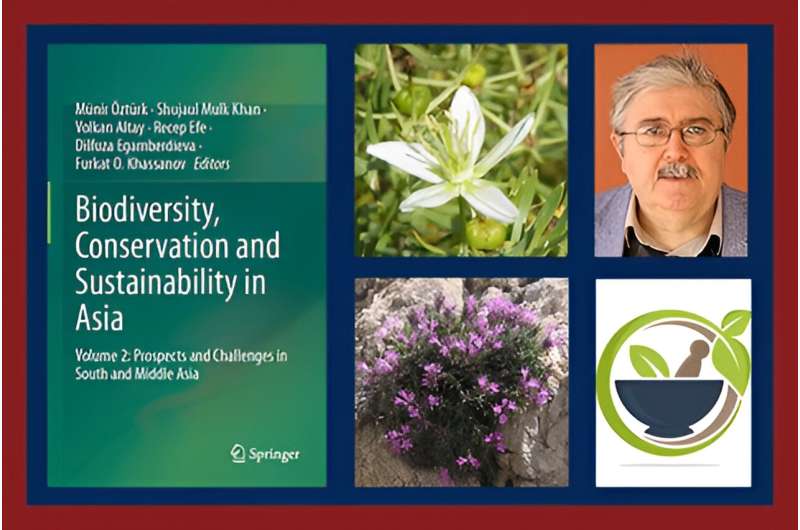This article has been reviewed according to Science X's editorial process and policies. Editors have highlighted the following attributes while ensuring the content's credibility:
fact-checked
trusted source
proofread
Researcher shows herbal plant, Syrian rue, has potential for treatment of anxiety and depression

Nazim Mamedov, adjunct assistant professor in the Stockbridge School of Agriculture, has been telling the international scientific community about the pharmacological properties of specific herbal plants native to Syria and Iran. Now his research, published in two chapters of the new anthology "Biodiversity, Conservation and Sustainability in Asia," will refresh and advance the content of his courses on herbal medicine.
Peganum harmala, aka Syrian rue, has long been used, mainly as a ritual and psychedelic plant, in the traditional folk medicine of Central Asia, the Middle East and the former Soviet republic of Azerbaijan, where Mamedov was born.
By applying scientific method and modern lab equipment, Mamedov has shown that Syrian rue has potential for treatment of anxiety and depression.
In a small study, 90% of participants reported improvement of their mild to moderate symptoms. Mamedov also cites the plant's potential antispasmodic and painkilling effects, particularly in the treatment of Parkinson's disease, eye afflictions and rheumatoid arthritis. He summarizes the prior findings of other scientists who have found evidence that elements of the plant can be used to suppress cancerous tumor growth.
A recognized expert in the ethnobotany and ethnopharmacology of medicinal plants, with more than 90 publications, Mamedov recently provided a long-distance webinar, "Medicinal Plants for Cancer Treatment," to students and scientists at the University of Maragheh in Iran.
Thyme, or thymus, native to Iran, is used as an expectorant for treating chest congestion from the common cold. Mamedov says this natural remedy has not been adequately studied for its pharmacological potential. After distinguishing the 14 species of thyme, he has used phytochemistry to draw attention to the plant's essential oils and to elaborate their chemical profiles, some of which show antibacterial, antimicrobial and antioxidative properties.
The oils, especially thymol, inhibit the growth of several known pathogens, including streptococcus (strep throat), staphylococcus (staph infections), E. coli, and salmonella.
With the assistance of his student Alina Gusev, Mamedov recently published a paper in Acta Botanica Caucasica on "The Correlation Between Color of Flowers and Healing Abilities of Medicinal Plants," showing that plants with similar color flowers have similar effects on the body. They found that purple flowering herbs support the immune system, blue flowering herbs are anti-inflammatory, yellow ones assist digestion and white ones sedate or regulate the nervous system.
Mamedov notes that while such correlations are never absolute, they provide students with a starting point for making sense of the natural world through science.
Provided by University of Massachusetts Amherst





















